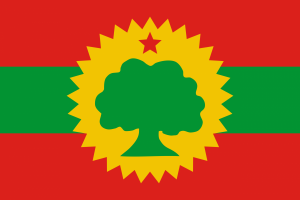Language/Borana-arsi-guji-oromo/Grammar/Plurals
Hi Borana-Arsi-Guji Oromo learners!😊
Learning Borana-Arsi-Guji Oromo Grammar
Plurals are an important part of the Borana-Arsi-Guji Oromo language. They are used to indicate more than one of something. In this lesson, we will look at how to form plurals in Borana-Arsi-Guji Oromo.
Forming Plurals
In Borana-Arsi-Guji Oromo, plurals are formed by adding a suffix to the end of the word. The suffix depends on the type of word being pluralized.
Nouns
Nouns are pluralized by adding the suffix -oota. For example:
- guddaa (man) becomes guddaoota (men)
- qabeenya (woman) becomes qabeenyoota (women)
- gara (house) becomes garoota (houses)
Adjectives
Adjectives are pluralized by adding the suffix -ootii. For example:
- qabu (big) becomes qabuootii (big)
- qabsoo (small) becomes qabsoootii (small)
- qabattee (beautiful) becomes qabatteeootii (beautiful)
Verbs
Verbs are pluralized by adding the suffix -ee. For example:
- dubbata (to speak) becomes dubbatee (to speak)
- qabata (to do) becomes qabatee (to do)
- barbaada (to go) becomes barbaadee (to go)
Using Plurals
Once you know how to form plurals in Borana-Arsi-Guji Oromo, it is important to understand how to use them correctly. Plurals are used when referring to more than one person, place, or thing. For example:
- Guddaoota bakka bu'uuraa jiran. (The men are walking down the street.)
- Garoota qabeenyoota qabuootii. (The houses are big.)
- Dubbatee qabatee barbaadee. (They are speaking, doing, and going.)
To improve your Borana-Arsi-Guji Oromo Grammar, you can also use the Polyglot Club website. Find native speakers and ask them any questions!
If you have any questions, please ask them in the comments section below.
Feel free to edit this wiki page if you think it can be improved. 😎

